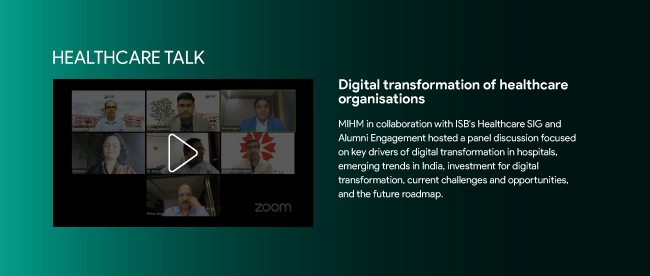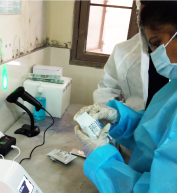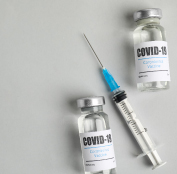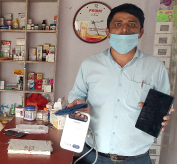
|

|
|
||||||||||||||||||

| ALUMNI BUZZ | |||||||||||||||||
| Funding Alerts | |||||||||||||||||
|
|
|
|||||||||||||||
| Alumni Spotlight | |

|
PGP Co 2010 alumna Dr. Sujata Dhanuka talks about her transformational journey from being a pathologist to an agile industry leader in diagnostics. She was recently appointed the Head of Operations, Lupin Diagnostics. |
| Read more >> | |
| IN THE NEWS | |||||
|
|
||||
| ABOUT US |
| Max Institute of Healthcare Management (MIHM) is an interdisciplinary research centre at the Indian School of Business (ISB) that provides deep insights on healthcare delivery and management to policymakers, public institutions and corporates, and enables the creation of better health systems through the integrated elements of Research, Education and Outreach. Its focus areas are (a) Managing healthcare delivery systems, (b) Financing and public policy, (c) Innovation and entrepreneurship, and (d) Patient centricity/consumer behaviour. |
| Write to us at maxinstitute@isb.edu. |
| SHARE THIS |
|
|
|


